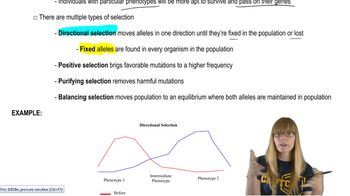Textbook Question
What is a spontaneous mutation, and why are spontaneous mutations rare?
1197
views

 Verified step by step guidance
Verified step by step guidance



What is a spontaneous mutation, and why are spontaneous mutations rare?
Why would a mutation in a somatic cell of a multicellular organism not necessarily result in a detectable phenotype?
Most mutations are thought to be deleterious. Why, then, is it reasonable to state that mutations are essential to the evolutionary process?
Most mutations in a diploid organism are recessive. Why?
What is the difference between a silent mutation and a neutral mutation?
Describe a tautomeric shift and how it may lead to a mutation.